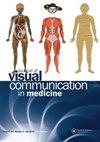广受欢迎的标志性心形符号的起源:虚构还是事实?
IF 1
Q4 RADIOLOGY, NUCLEAR MEDICINE & MEDICAL IMAGING
引用次数: 0
摘要
人们普遍认为,心是情感、亲情和爱的核心。它被普遍接受的标志性表现形式随处可见。然而,问题是:流行的心形从何而来?事实上,很难将这一符号与真正的心形联系起来。可能的早期例子或直接前身是在 13 至 14 世纪,人们熟悉的代表爱情的心形符号是在 15 世纪发展起来的,并于 16 世纪在欧洲流行起来。在进行多项冠状动脉全闭塞再通术时,令人兴奋的发现是,在同时对左右冠状动脉进行双重注射时,可以有效观察到心脏的标志性阴影。很难推测,在心脏图像首次出现时,人们的眼睛就已经能看到这种心脏形状的证据。我们的祖先是如何将图标形式与真实的心脏形状联系起来的呢?在本文中,我们将讨论这一图标形状是如何从古代世界的解剖学观察中衍生出来的。本文章由计算机程序翻译,如有差异,请以英文原文为准。
The origin of the popular iconic heart symbol: fiction or facts?
The heart is generally perceived as the core of emotion, affection, and love. Its universally accepted iconic representation is everywhere these sentiments have to be depicted. However, the question is: where does the popular heart shape comes from? In fact, it is difficult to relate this symbol to the real heart shape. With possible early examples or direct predecessors in the 13th to 14th century, the familiar symbol of the heart representing love developed in the 15th century, and became popular in Europe during the 16th. While performing several coronary total occlusion recanalization procedures, it has become excitingly evident that, during contemporaneous dual injections of both right and left coronary arteries, the iconic shadow of the heart can be effectively observed. The possibility that the evidence of this cardiac shape could already be visible to the eyes of people living at the time of the first iconic appearances of the heart image is difficult to surmise. How could our ancestors connect the iconic form to the real heart shape? In the present article, we discuss how this iconic shape could have been derived from anatomical observations made in the ancient world.
求助全文
通过发布文献求助,成功后即可免费获取论文全文。
去求助
来源期刊

Journal of Visual Communication in Medicine
RADIOLOGY, NUCLEAR MEDICINE & MEDICAL IMAGING-
CiteScore
1.50
自引率
14.30%
发文量
34
期刊介绍:
The Journal is a quarterly, international, peer-reviewed journal that acts as a vehicle for the interchange of information and ideas in the production, manipulation, storage and transport of images for medical education, records and research.
 求助内容:
求助内容: 应助结果提醒方式:
应助结果提醒方式:


